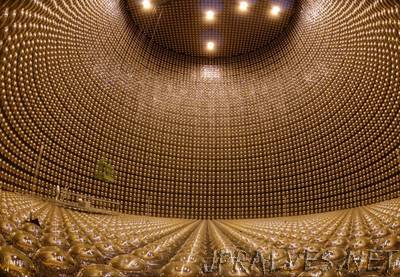
“New results show a difference in the way neutrinos and antineutrinos behave, which could help explain why there is so much matter in the universe. The results, announced today by the international team of scientists including large group from Imperial College London, suggest there could be a difference between the behaviour of matter and antimatter. The T2K Collaboration of scientists studies the properties of neutrinos and their antimatter counterparts, antineutrinos. Neutrinos are fundamental particles that make up our universe and are among the least understood. Yet every second around 50 trillion neutrinos from the Sun pass through your body. Understanding whether neutrinos and antineutrinos behave differently is important, because if all types of matter and antimatter behave the same way, they should have completely wiped each other out shortly after the Big Bang. If this were the case, our universe would not exist. Neutrinos and antineutrinos can both change between three ‘flavours’ as they travel, named electron, muon and tau neutrinos. Changes between the three flavours are known as oscillations.”
